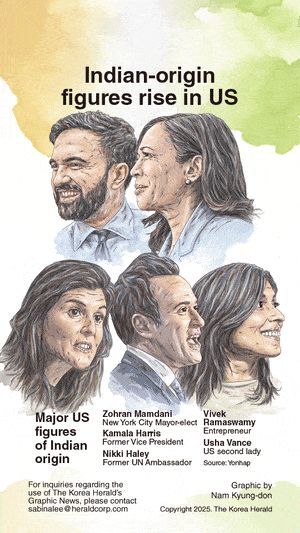Political Shake-Up: Presidential Secretary Resigns Amid Controversy Over Far-Right Views
koreaherald Views
![Kang Jun-wook, former presidential secretary for national integration, left, enters a meeting of presidential senior aides and secretaries held at the presidential office in Seoul on Tuesday. Yonhap]](https://contents-cdn.viewus.co.kr/image/2025/07/CP-2023-0309/30884331.jpg) Kang Jun-wook, the presidential secretary for national integration, resigned Tuesday, the presidential office announced. His resignation came amid public criticism over his book defending former President Yoon Suk Yeol’s failed martial law bid.
Kang Jun-wook, the presidential secretary for national integration, resigned Tuesday, the presidential office announced. His resignation came amid public criticism over his book defending former President Yoon Suk Yeol’s failed martial law bid.
The president accepted his resignation, citing “public opinion that his views do not align with the governing philosophy and principles of the administration,” the spokesperson said.
Public concern arose when it was revealed that Kang, who was tasked with unifying a politically divided nation, had expressed far-right ideologies on social media and in a previously published book.
In March of this year, Kang published a political commentary book that included sections supporting Yoon’s martial law bid.
In the book, he wrote, “(Yoon’s) martial law was imposed as an act of rebellion when he could no longer tolerate the violent abuse of power by the majority party,” referring to the Democratic Party of Korea, which holds a firm parliamentary majority. Kang argued that the public’s perception of Yoon’s martial law as an act of insurrection was the result of the Democratic Party’s manipulation of public opinion.
A Facebook post by Kang from around 2018 also revealed pro-Japan views. He supported the 1910-45 Japanese colonial rule over Korea as a means of modernization while downplaying the coercive aspects of Japan’s wartime military sexual slavery.
Kang wrote, “The attitude of the Japanese people is too respectful to have recklessly taken anyone, including comfort women, from the streets,” using a euphemism for the Korean victims of sexual slavery. He added, “I believe that the colonial rule modernized Korea and do not believe in forced labor.”
Far-right scholars often dismiss early 20th-century independence fighters against Japan as terrorists, arguing that Japan’s 1910-45 colonial rule helped modernize Korea.
The presidential office stated its intention to appoint another conservative figure who shares the Lee administration’s political philosophy as Kang’s successor.
In recent weeks, several of Lee’s Cabinet picks have been embroiled in controversies.
Kang’s resignation came shortly after the president’s decision to withdraw his nomination of Education Minister Lee Jin-sook, following allegations of academic plagiarism and of breaking the law by sending her daughter overseas for study.
The former nominee apologized for sending her daughter overseas in 2007 as a ninth-grader, which violated Korean law mandating compulsory education through middle school, though she denied the academic plagiarism allegations.
President Lee appears likely to proceed with the appointment of Gender Minister nominee Kang Sun-woo, despite accusations that she mistreated staff members at her legislative office during her tenure as a two-term Democratic Party lawmaker.
Reports allege that Kang Sun-woo replaced staff members 46 times over just five years and made demands outside their legislative support duties, such as asking them to repair her toilet. The nominee stated at her hearing that the correct number was 27, not 46.
Presidential spokesperson Kang Yu-jung announced at Tuesday morning’s press briefing that President Lee is expected to submit a request to the National Assembly by the end of the day to reconsider and adopt Kang’s personnel hearing report.
Last week, rival parties failed to reach an agreement on adopting Kang’s personnel hearing report, a mandatory step in the Cabinet nomination process. While Cabinet ministers must undergo a parliamentary confirmation hearing, their appointment by the president does not require approval by the Assembly.










Most Commented